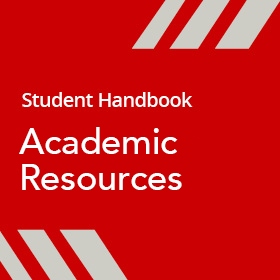Where to Locate Premium Academic Resources for Your Study
Recognizing high-grade scholastic resources is vital for extensive research study, yet navigating the substantial landscape of readily available materials can be daunting. University collections offer as invaluable centers, providing not only considerable collections yet also the know-how of specialized librarians. Additionally, on-line academic databases like JSTOR and PubMed accumulated academic posts, while open access journals provide more inclusive access to research findings. However, the exploration does not quit there; various systems exist that additionally improve research study abilities. Understanding just how to utilize these resources efficiently can significantly influence your study outcomes. The next actions may surprise you.
College Libraries

Beyond physical collections, university libraries often provide customized research support, consisting of appointments with librarians that have subject experience (Docentra). This guidance can substantially boost the performance and effectiveness of the research study procedure, permitting users to navigate complex information landscapes with higher ease
In addition, several collections provide access to uncommon and archival materials, which can be indispensable for sophisticated study tasks. Such one-of-a-kind sources frequently include primary files, manuscripts, and historical collections that are not readily available elsewhere.
Moreover, university libraries frequently host workshops and seminars targeted at improving information literacy abilities. These initiatives equip students and professors to critically evaluate resources, an essential skill in today's information-rich environment. On the whole, college collections not just offer as databases of understanding however also function as dynamic hubs that foster scholastic development and development.
Online Academic Databases
In the realm of academic research, on-line scholastic data sources play a critical role in supplying trainees and scholars with immediate accessibility to a riches of scholarly write-ups, journals, and various other vital resources. These digital databases work as central platforms where users can successfully look for peer-reviewed literature across different disciplines.
Noticeable databases such as JSTOR, PubMed, and Scopus host extensive collections that cover a wide range of subjects, from the liberal arts to the sciences. Docentra. By utilizing advanced search capabilities, researchers can fine-tune their inquiries, filter outcomes by publication day, and access citation devices, thus enhancing the study process's effectiveness and accuracy
Additionally, many databases provide features like signals for new publications and the capability to conserve and organize posts, even more simplifying the research experience. Memberships to these data sources are frequently given via scholastic organizations, granting students and professor unrestricted accessibility to costs content.
Open Gain Access To Journals
Progressively, scientists are transforming to open accessibility journals as a complementary resource to typical academic data sources. These journals provide an important platform for distributing study searchings for without the economic obstacles usually associated with subscription-based magazines. Open access models enable for cost-free on the internet access to click here to find out more scholarly short articles, making certain that study is obtainable to a bigger target market, consisting of practitioners, policymakers, and the general public.
The quality of open accessibility journals has actually dramatically boosted, with numerous adhering to rigorous peer-review procedures and being indexed in reliable databases. This change has actually cultivated greater transparency and partnership in the academia, as scientists can share their work quicker and receive responses from varied perspectives.
Moreover, the spreading of open gain access to journals aligns with the global activity towards open scientific research, advertising the idea that openly funded research need to be easily available to all. Scientists seeking high-quality scholastic resources need to think about respectable open access journals, such as those detailed in the Directory of Open Accessibility Journals (DOAJ) or those released by acknowledged academic cultures. By integrating open accessibility journals into their research methods, scholars can improve the visibility and influence of their work.
ResearchGate and Academia.edu
ResearchGate and Academia.edu have actually arised as critical systems for academic networking and knowledge sharing, with countless scientists leveraging these sites to distribute their job and get in touch with peers. Both platforms permit individuals to develop profiles that showcase their magazines, study rate of interests, and academic success, helping with greater presence within the scholarly neighborhood.
ResearchGate, founded in 2008, focuses on advertising cooperation among scientists through features such as research study cooperation devices, project sharing, and question-and-answer online forums. Users can post their papers, engage in discussions, and adhere to the job of others, enhancing the collaborative potential of their research study. The system additionally gives metrics on paper visibility and downloads, allowing scientists to assess the effect of their job.
Academia.edu, launched in 2008 also, runs similarly however emphasizes the sharing of academic documents. Customers can follow certain research topics and receive updates on new publications within their areas of interest. Additionally, Academia.edu offers analytics on viewers engagement, aiding scientists recognize read the article their target market much better.
Both systems offer as useful sources for accessing top quality academic content and cultivating links that can bring about impactful partnerships.
Google Scholar and Beyond
Academic networking platforms like ResearchGate and Academia.edu play a considerable role in disseminating research, yet Google Scholar supplies a various measurement by working as an extensive internet search engine for read what he said academic literature. It indexes a vast selection of resources, including peer-reviewed write-ups, theses, publications, seminar proceedings, and licenses, making it an invaluable device for researchers throughout disciplines.
Google Scholar gives numerous attributes that improve research performance. The citation tracking function enables users to see just how commonly a paper has been mentioned, offering understandings into its influence within the scholastic community. Furthermore, the "related articles" function aids scientists discover similar researches, assisting in a much more comprehensive expedition of a topic.

Verdict
In verdict, accessing premium scholastic sources is essential for extensive research study. College collections offer substantial collections and experienced guidance, while online academic databases such as JSTOR and PubMed streamline academic write-ups. Making use of these sources jointly can significantly enhance the quality and depth of academic research.